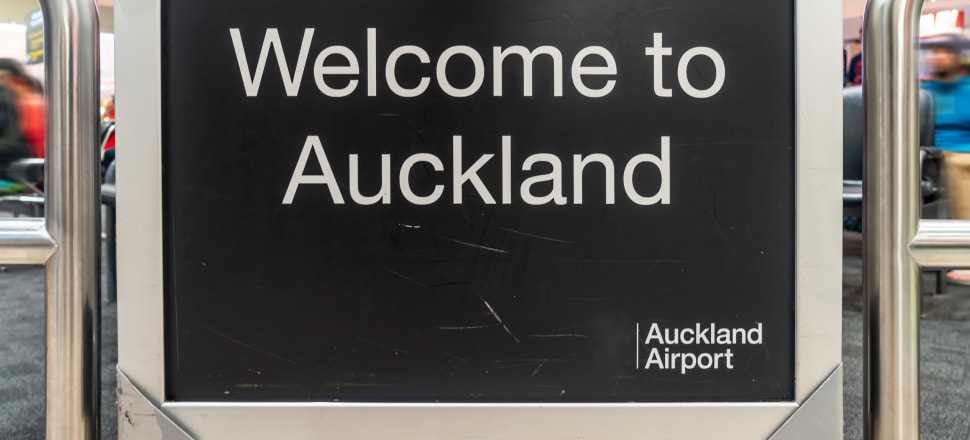
The Detail is told that immigration policy in this country has been 'a political football and a bug's muddle' for the past 10 to 20 years, and it needs to be dismantled and rebuilt from the ground up
It's not perfect, but the Green List fast track scheme for skilled migrant workers is highlighted as one of the few things that work for Immigration New Zealand.
Most of the rest of it has to go, says immigration lawyer Aaron Martin.
"Dismantle it," says Martin, head of Auckland practice New Zealand Immigration Law. "And start again."
There are parts that function well, he says, referring to the Green List.
"But what of the parts that do not function well? Why does it take 53 months for a residence application made by a victim of domestic violence to be processed? There's lots of areas where you've just got to ask, 'Why are we allowing that to carry on?'"
He makes the call as immigration numbers hit close to 100,000 for the year, with predictions that the same number could arrive in the next 12 months.
Statistics New Zealand's most recent figures show that in the year to July, migrant arrivals were 208,400, up 212 percent, while migrant departures were 112,200, up 38 percent.
That means annual net migration is a gain of 96,200: "the highest on record for an annual period", Stats NZ says.
"Immigration New Zealand is a black hole. It is opaque," RNZ business editor Gyles Beckford says.
"There's little coherence about immigration policy, I think. A lot of it is knee-jerk, it is short-termism – the thinking that goes behind it is not connected."
He explains what's behind the surge in numbers: how immigration has more than bounced back after falling to a trickle during the pandemic years.
"The moment the borders opened we got that surge of people leaving and coming in, but it's really been the opening of the visa categories and the loosening of the restrictions ... the need to get workers in to relieve shortages in various industries."
Under political pressure, and industry and business pressure, it's been much easier for people to get jobs here.
But despite the new wave of immigrants, helped by the Green List that gives straight-to-residence visas to certain groups of skilled workers, worrying gaps still hamper crucial sectors such as healthcare, education and construction.
Martin, an immigration lawyer for 25 years, says New Zealand struggles to compete with countries such as Australia, the US and the UK which offer better pay and conditions as well as more financial support for people applying for jobs here.
And we don't do ourselves any favours.
Nurses, for example. One of the problems is that the health sector wants people who are what Martin calls "photoshop ready".
"In other words, I will have a job for you if you are a nurse who has got your New Zealand registration and I just need to offer you the job.
"[Overseas nurses] have to go through the recognition of their prior learning qualifications – that costs them. They might have to do NZQA assessments. They then have to go through Nursing Council processes as well, and then they get told they need to do a CAP course (Competency Assessment Programme) ... that costs between $8,000 - $12,000.
"And they have to pay for that. Up front, with no promise of a job, plus all the other costs, in the hope they might get a job. That's a big risk to take.
"Australia – they actually facilitate all that.
"Sometimes we are inadvertently putting barriers in place in order to make it okay for us. Well hold on, how does it make it look from the point of view of the person that we're trying to attract?"
Asked if 100,000 new immigrants in one year is good or bad for the country, Martin says immigration is necessary if we want to maintain our way of life.
Beckford explains to The Detail that not so long ago New Zealand First party leader Winston Peters wanted to cap immigrants to 15,000 a year.
Ironically, at this election campaign, the 100,000 in a year has had scant mention.
But Beckford and Martin say immigration has been treated as a political football for too long, resulting in ad hoc, reactionary policies and little planning.
"It is time for the country to have a national conversation," says Beckford.
The anti-immigration talk that Peters fuelled was that the newcomers were entirely to blame for pushing up inflation, putting pressure on housing, stoking demand for services, and that in turn sparked calls for migrant numbers to be tightly controlled.
Beckford says the thinking around that is changing.
"The housing supply is a perennial problem for New Zealand, it has been for decades now," he says. "Migration has been a political football and a bug's muddle in this country for the past 10 to 20 years. It's allowed political parties of various persuasions to argue for and against migration. I don't think New Zealand has ever properly approached it."
New Zealand is in a global market, says Martin, where human labour has never been so moveable, ever.
"We need to appreciate that people have options."
Check out how to listen to and follow The Detail here.
You can also stay up-to-date by liking us on Facebook or following us on Twitter.








